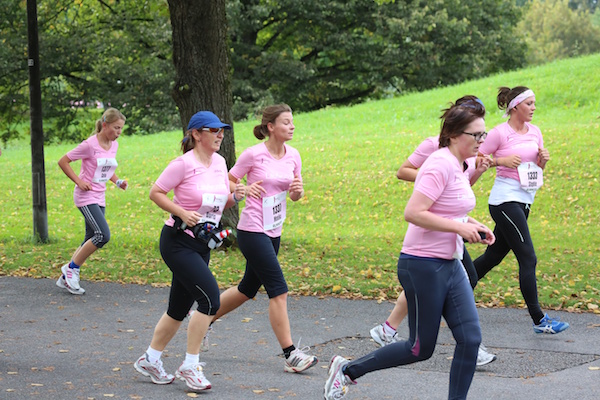
FRIDAY, June 6, 2014 (HealthDay News) — It goes without saying that being aggravated, criticized, annoyed or disappointed by friends or family members can be stressful.
But new research suggests that negative social interactions may actually harm the health of middle-aged women by triggering a long-term jump in blood pressure.
However, the dynamic was not seen among men or among women aged 65 and older in the study.
Study author Rodlescia Sneed, a doctoral candidate in psychology at Carnegie Mellon University in Pittsburgh, said the conclusion that negative social interactions seem to affect some women but not men “is consistent with previous research showing that women are more sensitive to the quality of their relationships than men are.”
But why not older women?
“The literature suggests that as people get older, they hone their social networks in order to focus on the relationships that are most important,” Sneed said, limiting their exposure to just a few close friendships, while avoiding negative people and situations.
“They [also] generally don’t have employment-related stress, are done raising their children and, if in good health, can spend their time engaged in activities that they enjoy,” she added. “This may not be true for younger people.”
The findings are published in the June issue of Health Psychology.
To explore this issue, the research team analyzed four years of blood pressure data collected from more than 1,500 men and women between the ages of 51 and 91, all of whom were enrolled in the Health and Retirement Study.
The vast majority (nearly 85 percent) of the participants were white, and none had high blood pressure when the study began in 2006. However, by the study’s end in 2010, nearly 30 percent did.
In the interim, all the participants completed questionnaires regarding the degree to which they had experienced unpleasant and disappointing interactions with their partners, children, friends or other family members.
Respondents were asked how often people made too many demands on them; how often they were criticized; how often they were let down, and how often people got on their nerves.
After “scoring” the totality of each participant’s negative interactions with the people in their life, the study authors stacked the tallies up against blood pressure trends.
The result: For every one-point rise in negative socializing scores, women between the ages of 51 and 64 saw their risk for developing high blood pressure jump by 38 percent.
Having a negative interaction with a spouse or a child did not, however, seem to have any impact on blood pressure. As well, no such affect was seen among any of the male counterparts or among older women.
While noting that her investigation did not include people under 51, Sneed theorized that younger adults might also prove vulnerable to the impact of negative relationships.
“The mid-30s, for example, can be difficult with respect to work stress, raising children and financial problems,” she said. “Adding poor relationships to those difficulties can certainly increase one’s risk for health problems.”
Dr. Gregg Fonarow, a professor of cardiology at the University of California, Los Angeles, said the study shines a light on how relationships can have an enduring impact on blood pressure.
“Prior studies have suggested that negative social interactions can elevate blood pressure in the short term,” he noted. “[But] this new study links negative social interactions to the development of overt hypertension, suggesting a more long-term alternation in blood pressure control.”
That said, Fonarow stressed that “further studies are needed to confirm these findings and better understand the mechanism behind this link.”
More information
Visit the U.S. National Heart, Lung, and Blood Institute for more on high blood pressure.
Copyright © 2026 HealthDay. All rights reserved.

